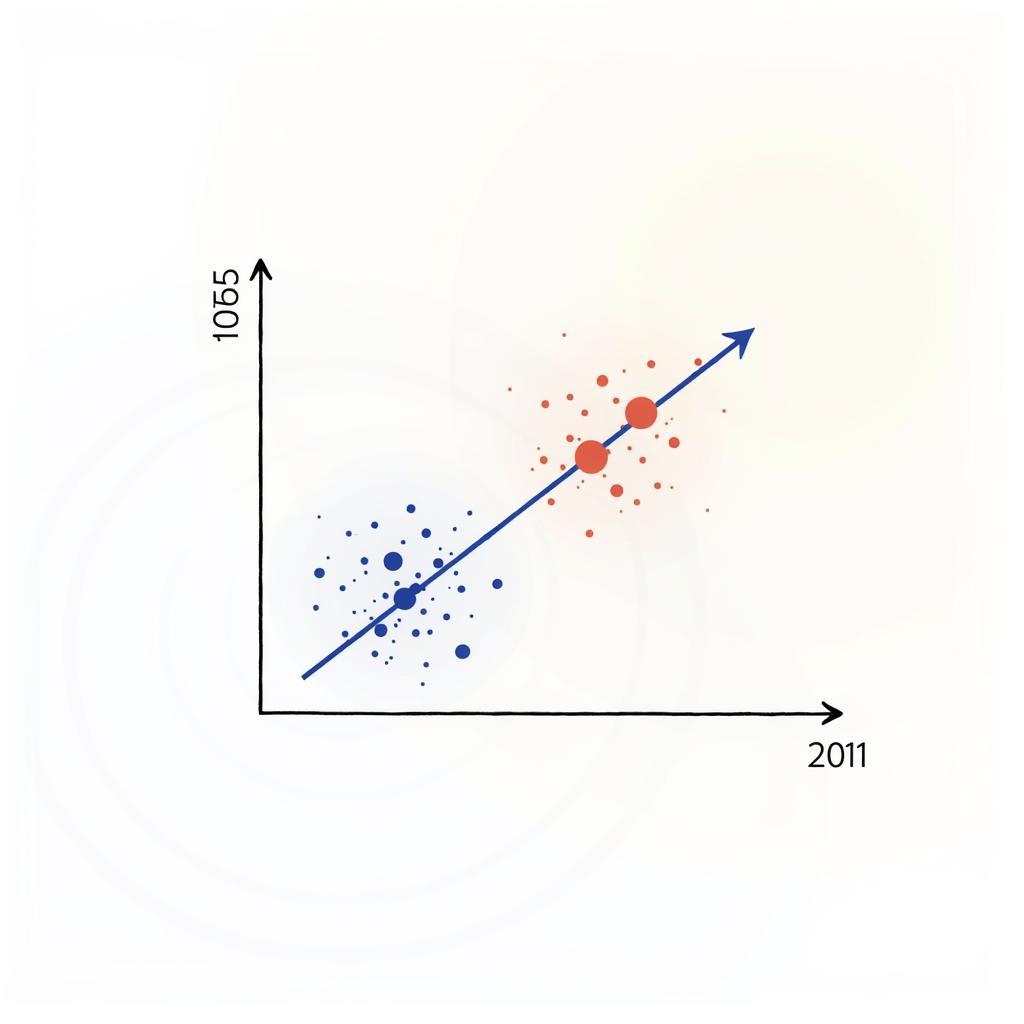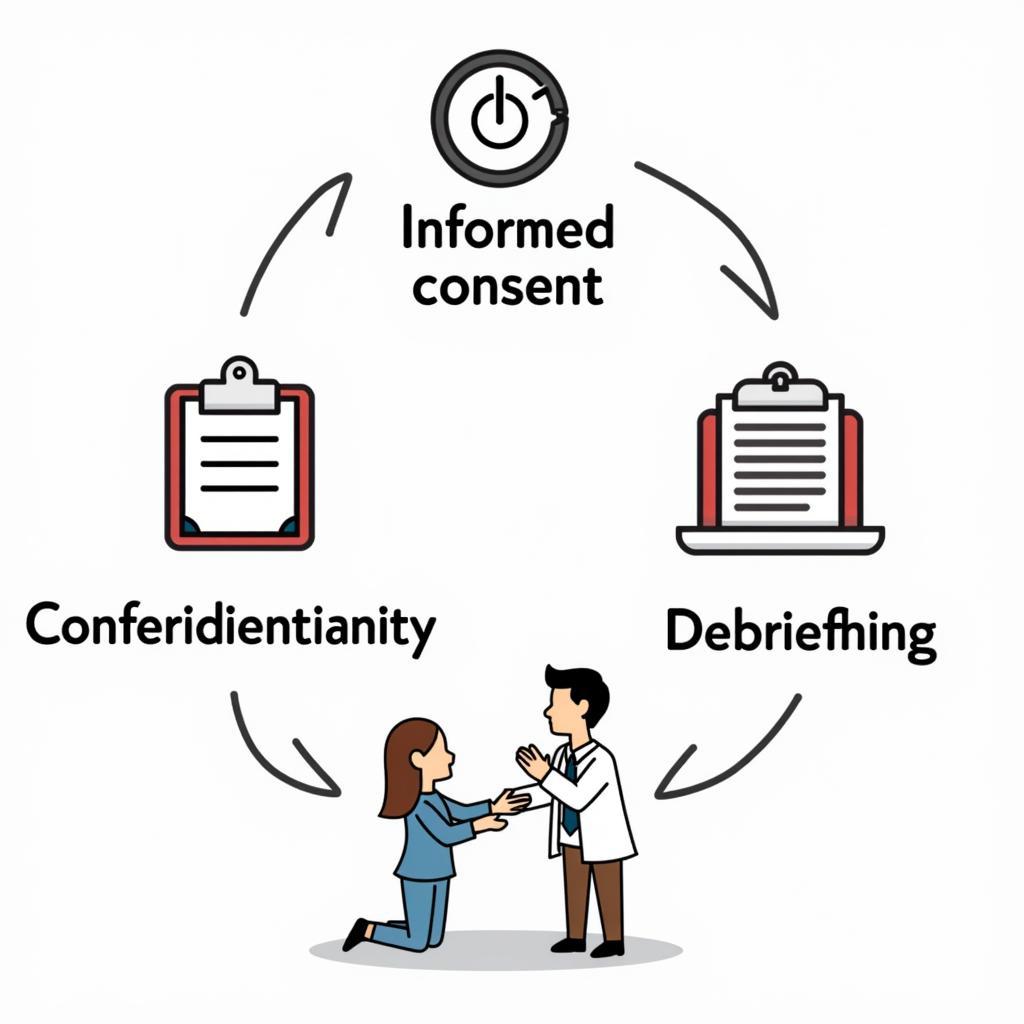Psychology research methods are the tools and techniques used to study human behavior and mental processes. Understanding these methods is essential for anyone interested in pursuing a career in psychology or simply wanting to become a more informed consumer of research. This crash course will equip you with a basic understanding of common psychology research methods.
Types of Research Methods in Psychology
Psychologists use a variety of research methods to explore different aspects of human behavior. Let’s delve into some of the most common ones:
1. Experimental Research
Experimental research is the gold standard for establishing cause-and-effect relationships.
- Independent Variable (IV): The variable that the researcher manipulates.
- Dependent Variable (DV): The variable that is measured to see if it is affected by the IV.
- Control Group: A group that does not receive the experimental treatment and serves as a baseline for comparison.
- Experimental Group: A group that receives the experimental treatment (manipulation of the IV).
Example: A researcher wants to investigate if a new type of therapy reduces anxiety. The IV would be the type of therapy (new therapy vs. standard therapy), and the DV would be the level of anxiety (measured using a standardized anxiety scale).
2. Correlational Research
Correlational research examines the relationship between two or more variables. However, it’s crucial to remember: Correlation does not equal causation.
- Positive Correlation: As one variable increases, so does the other.
- Negative Correlation: As one variable increases, the other decreases.
Example: Researchers might find a positive correlation between hours spent studying and exam scores. This means that those who study more tend to perform better, but it doesn’t prove that studying more directly causes higher scores.
 Correlation vs. Causation
Correlation vs. Causation
3. Descriptive Research
Descriptive research aims to observe and describe behavior without manipulating any variables. Common methods include:
- Naturalistic Observation: Observing behavior in its natural setting without interference.
- Case Studies: In-depth investigations of a single individual or a small group.
- Surveys: Collecting data through questionnaires or interviews.
Example: A researcher might conduct naturalistic observations to understand social interaction patterns in a school cafeteria.
4. Qualitative Research
Qualitative research focuses on in-depth, non-numerical data, often exploring experiences, perspectives, and meanings.
- Interviews: Structured or semi-structured conversations to gather in-depth information.
- Focus Groups: Group discussions on a particular topic to gain insights into shared perspectives.
- Content Analysis: Examining and interpreting textual or visual data.
Example: Researchers might conduct interviews to explore the lived experiences of individuals with a particular mental health condition.
Ethics in Psychology Research
Ethical considerations are paramount in psychology research. Key principles include:
- Informed Consent: Participants must be fully informed about the research and voluntarily agree to participate.
- Confidentiality: Participants’ identities and data must be protected.
- Debriefing: After the study, participants should be fully informed about the purpose and results.
 Ethical Considerations in Research
Ethical Considerations in Research
Crash Course Takeaways
- Understanding research methods is crucial for critically evaluating psychological findings.
- Each research method has its strengths and limitations.
- Ethical considerations are paramount in all psychology research.
FAQs About Psychology Research Methods
1. What is the best research method in psychology?
There is no single “best” method. The most appropriate method depends on the research question, the resources available, and ethical considerations.
2. What is the difference between reliability and validity in research?
- Reliability refers to the consistency of a measure.
- Validity refers to the accuracy of a measure (whether it measures what it’s supposed to measure).
3. Why is a control group important in experimental research?
A control group provides a baseline for comparison, allowing researchers to determine if the experimental treatment had a significant effect.
Need Help with Your Psychology Research?
Do you have more questions about psychology research methods or need assistance with your research project? Our team of experienced researchers at Paranormal Research is here to help. Contact us at 0904826292, email us at research@gmail.com, or visit our office at No. 31, Alley 142/7, P. Phú Viên, Bồ Đề, Long Biên, Hà Nội, Việt Nam. We’re available 24/7 to assist you.